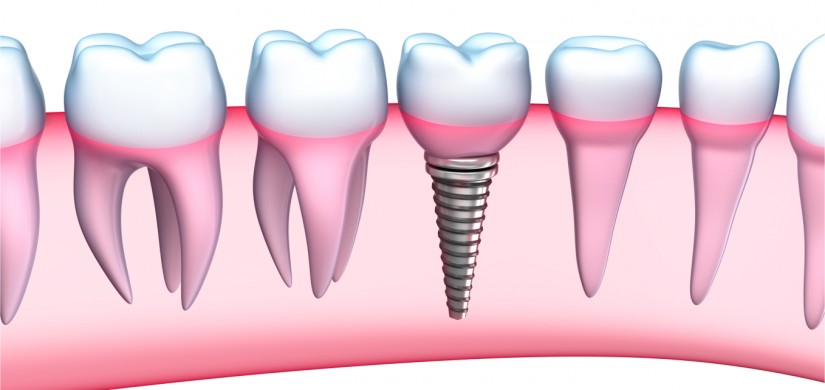
What is a Dental Implant?
Dental implants are titanium posts that mimic the root of a tooth that are surgically placed into the jawbone. Once placed, a small amount of time is allowed for the bone to fuse or osseointegrate to the implant. The implant can then be used to secure crowns, bridges or dentures. In addition to restoring lost teeth and stabilizing dentures, dental implants allow patients to restore lost function as well, such as eating, smiling, and speaking. Overall, the success rate for integration of implants is over 95%, making it the highest success rate of any implanted surgical device.
Am I a Candidate?
Likely so. Dental implants can be a solution for replacement of a missing tooth or teeth in addition implants can be used to stabilize dentures. Although no two patients are alike, individual treatment plans can be developed in consultation with your general dentist and surgeon to achieve the goals you desire.
There are instances in which dental implants may not be appropriate. These include but are not limited to:
During your consultation, x-rays will be obtained to ascertain the position of nerves and sinus cavities. In rare instances, there may limited room for placement of the implants.
Uncontrolled diabetes, active cancer and certain bone diseases, previous radiation treatment to the head and neck region and poor overall general health.
In some cases, either through trauma or atrophy, there is a lack of supporting bone. Fortunately, in most cases, Drs. Shaver and Hammen are highly skilled and trained in bone grafting techniques that can be used to rebuild the defects. After discussion with your surgeon, we can customize a plan for you.
Smoking is not an absolute contraindication to dental implant placement, however studies show the success rates of osseointegration of the implant is slightly decreased.
Children and young adults should not have implants placed before the jaw bones have stopped growing.
Uncontrolled gum disease is a contraindication to implant placement. Healthy gum tissue is vital for the healing and success of dental implants. Until your oral health is maintained and sustained at an optimal level, treatment with dental implants may need to be delayed.
Advantages of Dental Implants
- Alternative to bridges. Dental implants eliminate the need to grind down adjacent healthy teeth.
- Comfort: Using dental implants as anchors to stabilize dentures, they eliminate loosening of dentures that result in pain, gum irritation and poor function.
- Prevents deterioration of the jawbone caused by tooth loss.
- Physical and psychological: Improved self confidence and function. The ability to laugh, eat, speak and smile are optimized.
Success Rates
In general, the success rates for osseointegration of implants is greater than 95%, making it the highest success rate for any implanted surgical device. Many implants have been in place for over 40 years. Proper home care, including brushing and flossing, in addition to regular dental visits are required for long-term health and success.
